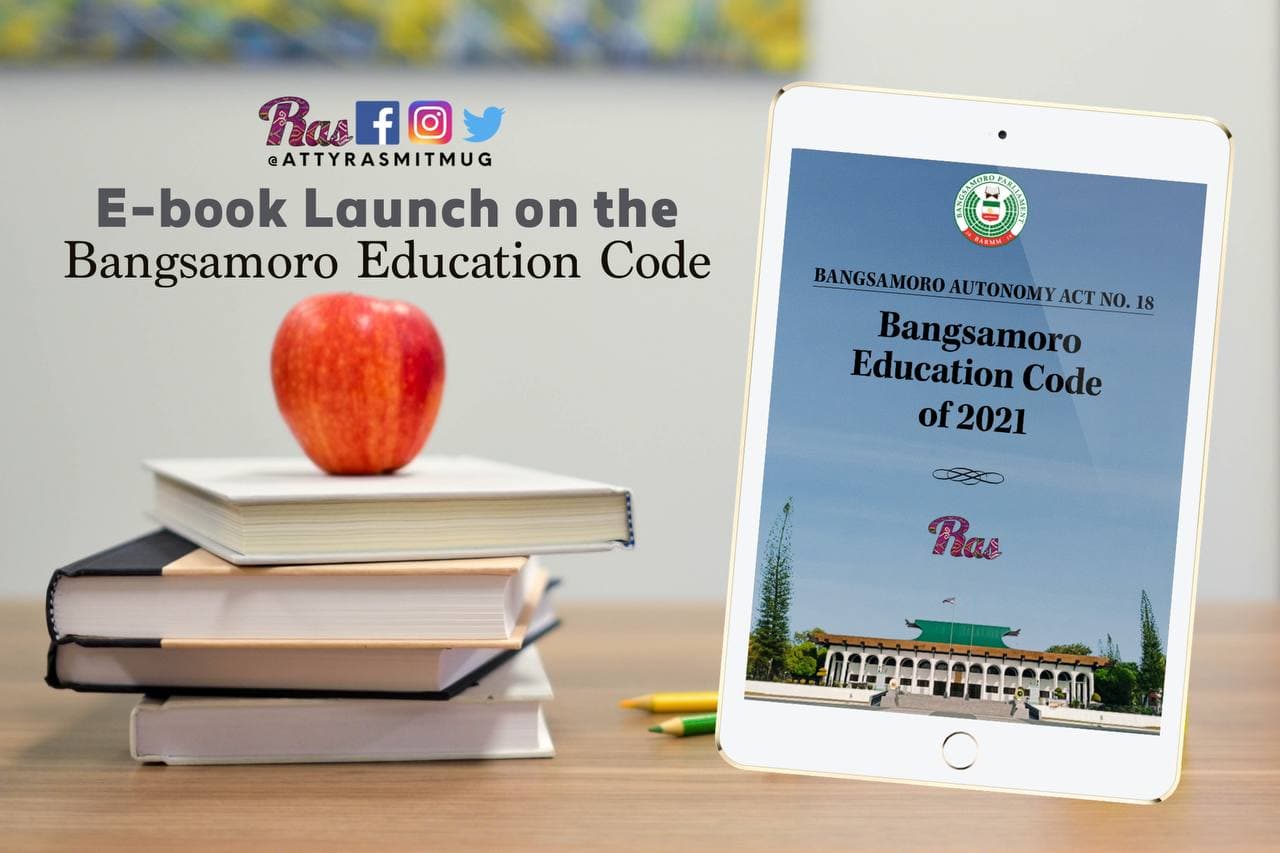
The Office of MP Rasol Y. Mitmug, Jr. launches its e-book on the Bangsamoro Education Code. This is the fifth e-book in a series on Bangsamoro legal and legislative references.
The BEC, or Bangsamoro Autonomy Act No. 18, was passed earlier in May during a special session. It is one of the priority codes of the Bangsamoro Transition Authority, and covers the educational system within the Bangsamoro Autonomous Region.
The BEC is the Bangsamoro Parliament’s response to creating an educational framework that is relevant and responsive to the needs, ideals, and aspirations of the Bangsamoro people.
Unique provisions within the BEC cover the establishment of the public madrasah system, the integration of the Tahfidz Al-Quran (also referred to as toril in some areas) in the alternative learning system, and the creation of a tribal university system, among others.
MP Mitmug hopes this will be a valuable resource for students, teachers, lawyers, and everyday citizens who wish to read and understand the new Bangsamoro government.
e-Book Layout by: Deogracias A. Arellano / deoaaa@gmail.com
Download links:
Bangsamoro Education Code (Bangsamoro Autonomy Act No. 18) EPUB | PDF

